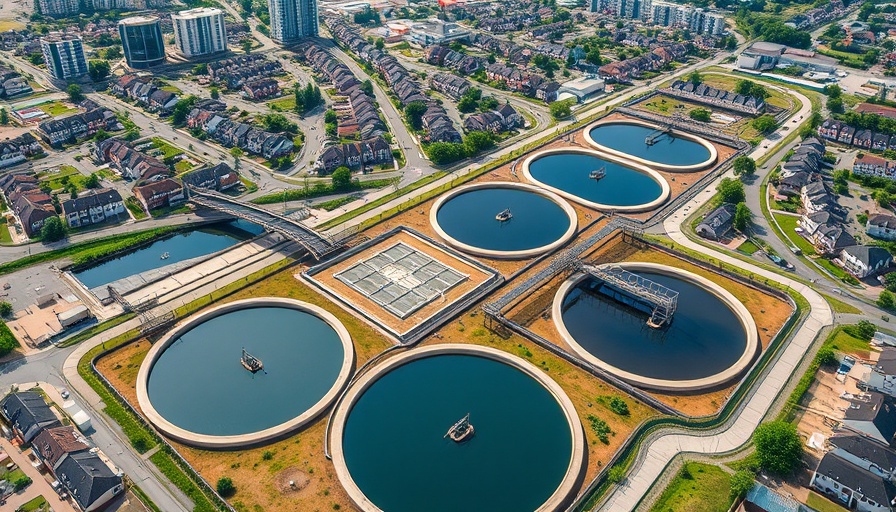
From Loss to Gain: The Cost of Untreated Wastewater in the Philippines
In a stark reflection of the environmental crisis, the Philippines loses nearly US$260 million annually due to untreated wastewater, according to a report by Economist Impact and the Nippon Foundation. While the country has made strides in treating roughly 67% of its wastewater, there's an urgent need for enhanced investment in infrastructure to tackle the significant economic and human impact of poor sewage treatment.
The Economic Burden of Poor Sewage Management
The findings underscore that the agricultural sector bears the heaviest brunt, with losses approaching 90% of the total impact. These staggering costs are largely driven by contamination of crops due to polluted irrigation water that reduces yields and deteriorates soil health. Specifically, the report indicates that the agricultural losses comprise around US$228 million, heavily affecting sugarcane and corn crops.
Public Health Crisis
It's not solely agriculture that suffers; the healthcare sector incurs more than US$19 million annually in costs related to waterborne illnesses, notably affecting millions of people who are exposed to contaminated drinking water. Diseases such as diarrhea, cholera, and typhoid have risen significantly as a consequence of poor wastewater management.
Progress Made and Challenges Ahead
Metro Manila residents have experienced improvement from the city's increased sewage treatment facilities, with capacity rising from 40 million liters per day to 410 million since 1997. The Manila Water Company plans further expansion but maintaining these advancements is crucial. The report emphasizes, “While this progress is remarkable, continuous investment in infrastructure maintenance is essential for long-term sustainability.”
Circular Economy: A Path to Solutions
There's a bright side to the wastewater crisis: embracing a circular economy could unlock substantial rewards. Researchers propose repurposing sludge into organic fertilizers, which can mitigate soil erosion while simultaneously producing biogas as a renewable energy source. This not only reduces landfill waste but also supports local agriculture, presenting a win-win scenario.
Innovative Decentralized Solutions
Decentralized wastewater treatment systems are emerging as a feasible solution for areas that aren’t fully sewered, similar to successful implementations in Kenya. Such systems can treat wastewater at a community level, reducing the infrastructural demands and costs associated with centralized systems, thereby addressing the unique needs of rural populations.
Government and Community Responsibility
The stakes are high; without immediate action from both government and local communities, these issues will exacerbate. Financial mismanagement in wastewater systems represents a lost opportunity for enhancing public health and boosting economic productivity. Dr. Amelia Wenger from the Wildlife Conservation Society strongly advocates for energetic policy shifts and community engagement: “We must recognize that the consequences of inaction not only endanger our environment but directly impact the livelihoods of our citizens.”
Conclusion: A Call to Sustainable Action
To address these pressing challenges, responsible consumption, sustainable living, and eco-friendly innovation must take center stage in our solutions. By investing smartly in wastewater infrastructure and promoting a circular economy, we can turn the tide against pollution and work toward a more sustainable future.
If you are passionate about protecting our environment and enhancing public health, consider ways to engage in local sustainability initiatives or seek out eco-friendly products and practices in your daily life.
 Add Row
Add Row  Add
Add 



Write A Comment